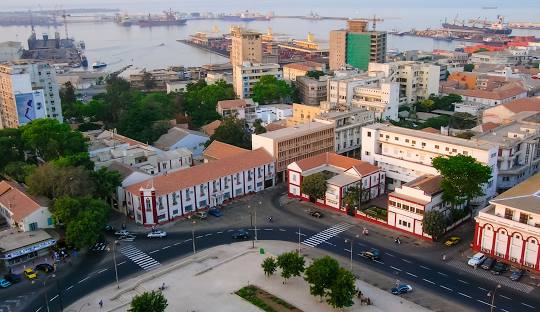
Senegal Becomes First African Nation to Achieve WHO Certification for Emergency Medical Team
Senegal has made history as the first African country to receive World Health Organization (WHO) certification for developing a deployable emergency medical team (EMT) capable of responding to global health crises. This milestone not only strengthens Senegal's position in emergency health management but also significantly enhances the African continent's overall capacity to address health emergencies.
The certification of Senegal’s Type 2 Emergency Medical Team (EMT2) follows rigorous international standards, making the team deployable within 72 hours to provide autonomous medical and surgical care to up to 2,500 patients for a four-week period. Senegal’s EMT2 is the 49th team globally to receive WHO classification, with 130 others still in the process.
“This certification is a turning point that reflects Senegal’s dedication to ensuring a coordinated and rapid response to health emergencies, both at home and internationally,” said Dr. Ibrahima Sy, Senegal’s Minister of Health and Social Action, during the certification ceremony. “It consolidates our position as a leader in health crisis management in Africa and beyond.”
The journey to certification spanned six years, during which WHO’s African Region provided intensive technical and financial support. The Senegalese Ministry of Health and Social Action worked closely with the WHO, the Health Emergency Operations Centre, and the Senegalese Armed Forces Health Service. Over this period, Senegalese teams have already been deployed to respond to crises in the Democratic Republic of Congo, Sierra Leone, and most recently, Guinea. The establishment of the WHO Regional Emergency Hub played a pivotal role in the finalization of Senegal’s EMT certification process.
Dr. Matshidiso Moeti, WHO Regional Director for Africa, congratulated Senegal on its achievement: “This milestone contributes significantly to the region’s growing expertise in addressing public health emergencies. EMTs are crucial in enhancing the capacity of national health systems, providing rapid life-saving action in times of crisis.”
Senegal’s EMT2 can handle a range of critical healthcare needs, including routine outpatient care, trauma management, and mass casualty incidents. The team is trained to work in challenging conditions, setting up fully self-contained field hospitals to minimize the strain on local resources already stretched by emergencies.
The WHO’s EMT classification process is overseen by its EMT Secretariat and aims to ensure the professionalism and quality of medical teams responding to disasters, conflicts, and outbreaks. Certified EMTs, such as Senegal’s, are vital in ensuring the rapid arrival of well-prepared health workers who can bolster local efforts during emergencies.
Senegal’s certification is a key part of WHO’s broader Emergency Medical Teams 2030 strategy, which envisions a world where every country is capable of effectively responding to national emergencies. By leveraging regional and sub-regional expertise, countries can better support vulnerable communities in need.
Senegal’s achievement is a significant step forward in strengthening Africa’s capacity to respond to health emergencies, marking the country as a leader in global health crisis management.